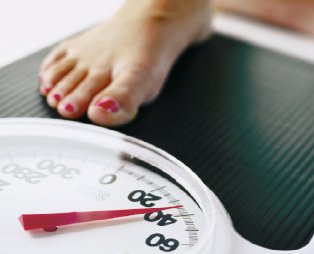Lose Weight > Common Sense To Lose Weight > Common Sense Article > Greasy Burgers Could Save America
Greasy Burgers Could Save America
High fuel prices mean high prices for everything from milk to socks. The reason, of course, is to get milk, food, TV's, and yes, socks to the store shelves they must be transported by truck. Ask any truck driver and he'll tell you, it's costing them a fortune to gas up their rigs. Gasoline prices are bad enough at over $4.00 per gallon. The diesel fuel most trucks run on is even worse at about $5.00 per gallon.
The major freight carriers, UPS, FedEx, and DHL have all adding fuel surcharges to their shipping rates. These surcharges as well as their normal rates are only going to go up as fuel prices continue to climb. That means anything you order online will cost you more to ship, or will simply cost more as the seller buries freight costs in product pricing.
So, if you've noticed prices on just about everything going up, high fuel prices are the major reason. What is the solution? I've written about building a bridge to energy independence, and one of the lanes on that bridge just might be bio diesel from fast food waste.
Many people have discovered that used fat and vegetable oil from fast food joints can be converted into bio diesel fuel. Who would've thunk it? Something that was considered waste a few years ago is fatty, greasy, gold today.
The problem is, like all other alternative fuel sources, not enough investment is being made into this source of fuel. Imagine how much greasy waste the thousands of fast food restaurants across America generate per day, per month, per year? The major fast food chains could not only help solve a fuel crisis, but they could make a heck of a lot of money doing it. It's a win/win.
It's already been proven to work. A friend of mine drives a diesel Volkswagen, and he has been buying grease from a Chinese restaurant in his town for a year. He converts the grease into bio diesel in his garage. As a salesman who drives all over New England, the savings in fuel costs for him are huge. To the tune of about $4,000 per year at current diesel prices.
Many small restaurants that used to pay waste companies to take away their excess grease are now being paid top dollar for their fatty fuel. There are companies popping up all over that specialize in converting this greasy waste into bio diesel. This has the potential to become a big business.
Most automobiles in America run on regular gasoline, not diesel fuel. However, most trucks that transport food and goods to store shelves do run on diesel fuel. The more expensive it is to fuel these trucks, the more the products they transport cost because trucking companies have to charge more in freight fees. Makes sense, right? So, If we could lower the fuel costs for trucking companies the prices of the products they carry would go down as well.
Why then, don't all the fast food chains get into the bio diesel business? The profits would be enormous even if they charged $10.00 per barrel because they create the waste already. All they would need to do is haul it to a grease refinery to turn it into bio diesel fuel. They might even be able to reduce prices on their food products because of the massive profits they would make. Not only that, but think of all the jobs that would be created by major grease refineries.
Imagine McDonald's Energy, or Wendy's Power, or Burger King Bio Fuel becoming big players in the energy industry. If they know what they're doing, within the next decade it could come to fruition. It may sound strange today, but it takes maverick thinking to make change happen. Microsoft got the rights to the computer mouse for nothing because the company that invented it, IBM, didn't think it was of any value. Do you think the mouse has changed the world? You bet. Bio fuel from fast food waste could do the same for American energy.
In fact, there is a restaurant chain in my neck of the woods in New England that is already doing it. Friendly's Ice Cream could serve as a model for the major nationwide fast food chains. They have begun turning their used vegetable oil into bio diesel for their own fleet of trucks and as an additive to heating oil at their corporate headquarters. With the help of local universities they built their own lab from scratch. There was no manual or model to build from. They basically created it from the ground up. That's innovation, Baby. That's waving bye bye to high oil prices. That's maverick thinking.
According to Jim Dangleis, director of Northeast Distribution, the benefit to the company is two-fold. They have significantly reduced fuel costs at a time when diesel prices have skyrocketed. They have also made their business more green, and that is something that customers really get behind. It's simply good for business to be environmentally friendly these days. It's a huge selling point that only a few years ago no one would have ever thought possible.
McDonald's is doing it in Great Britain already, so they may already have a leg up on bio diesel production. The other major chains should get on the band wagon. Fast food companies tale constant criticism for selling foods that are unhealthy. They could all seriously enhance their image by going green.
This is the kind of thinking and innovation that will transform America and the world. So, what are we waiting for?
Related Articles
-
5 Nutritious Foods That Help You Lose Weight
If youre looking for a way to jumpstart your weight loss program, crea
-
In the Mood for a Midnight Snack? Try These Healthy Night Snacks
A lot of people get hungry even immediately after they eat dinner.
-
Six Fantastic Exercises To Lose Weight Fast
To lose weight fast, eating right is not the only thing you should do.
-
Low Carb Diet Ideas - Tips And Tricks To Lose the Weight
For the most part when no matter how good your intentions are when
-
Latest Fitness News- Keep You Healthy & Fit
News is a report of recent events or previously unknown information
-
Hypothyroidism Can Be A Tough Disease To Beat
Hypothyroidism will be the situation exactly where you have inadequate
- DON'T MISS
- Fat Lady In A Thin Body WLS Patients Feel Like Imposters
- Weight Loss Help: How Do Programs Really Benefit You?
- The Solution To Healthy Weight Loss
- Does Acai Berry Work to Lose Weight?
- How to Know you are Getting the Best Weight Loss Pills
- Goji Juice Scams; How To Reveal Them
- Whats the Best Weight Loss Program for You?
- Cherokee Billie’s Proven Weight Loss Program
- Vegetarian Weight Loss Tips to Help Overweight Vegetarians Lose Weight with Eating
- Ways To Maintain A Healthy Lifestyle




